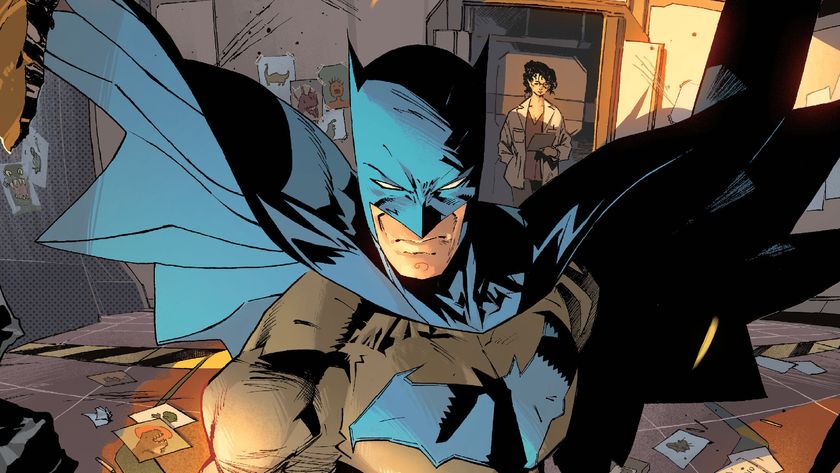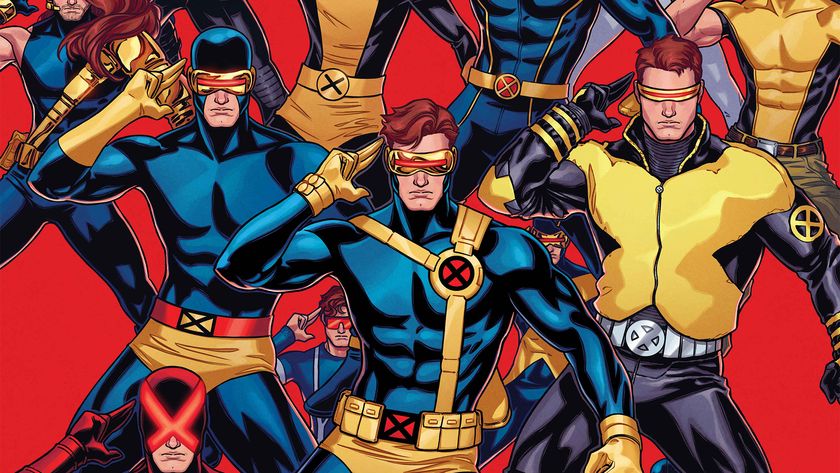Why you can trust 12DOVE
Nothing Steven Spielberg has made quite prepares you for Munich. Not the assault on Omaha Beach or the target practice of Nazi commandant Goeth. Saving Private Ryan and Schindler's List are the obvious comparisons within his previous 23 features, but neither is as bold or shocking. War Of The Worlds - with its trite allusions to terrorism - was merely a feint. This is the sucker punch - the bravest film of his career.
Spielberg needs to steel himself against the frenzied press coverage Munich will generate. He'll be called both a Zionist propagandist and a self-hating Jew, an opportunist and a fraud. But he's a smart enough man to know that if both sides attack you, you're probably doing something right. Even after making a film where 'right' and 'wrong' are very murky ideas indeed.
Murk is not something Spielberg has often chosen to explore - and certainly not with this kind of commitment. Neither has he ever made a film this intimately violent. No uniforms, no aliens, no gnashing rubber sharks... Brutality sunders the everyday. Terror comes home: in the bedroom, on the phone, carrying groceries or cradling a child. "I'm in business with Death - you think I'm squeamish?" asks the French godfather who gives Avner (Bana) his information. Spielberg certainly isn't. Munich leaves you numb, fragile and frighteningly aware of mortality. Reels flicker through the mind's eye (the barge slaying, the athlete's jaw, the knife), images so stark and upsetting you'll be staring at the ceiling, struggling to sleep.
Even by Spielberg's standards, information about the film has been kept to a minimum, with the makers adamant they won't be interviewed by anyone who hasn't seen it. The logic is clear: too much supposition and misplaced expectation about what has been done with material "inspired by real events". You have to see Munich to understand it can't be easily labelled, discussed or dismissed. Calling it a five-star thriller - which it is - feels reductive and flippant. It is thorny and provocative and will leave audiences shell-shocked. Cinema is rarely this relevant or unsettling.
The 1972 Munich hostage massacre is detailed in Kevin Macdonald's 1999 Oscar-winning documentary One Day In September. Munich deals with the days after. Israel's Prime Minister Golda Meir (Lynn Cohen) authorises intelligence agency Mossad to eliminate the 11 individuals supposedly responsible for the terrorist act - scattered around Europe either working explicitly, or allegedly undercover, for the foundation of a Palestinian homeland and/or the destruction of Israel. One's a pen-pushing family man, another's translating The Arabian Nights into Italian, another's protected by the KGB, another by the CIA. All are marked for death. And Avner doesn't question the evidence. "Every civilisation finds it necessary to negotiate compromises with its own values," says the PM in the film's most explicit moment of contemporary resonance. But pick a line, any line...
"What law protects people like this?"
"Do what the terrorists do."
"Why are these men implicated?"
"The world has been rough to you and your tribe and it's right to respond roughly to them."
"All this blood comes back to us."
Turn on the news. You'll hear the same argument, anguish and justification - though perhaps not the assertion of Daniel Craig's South African assassin: "Don't fuck with the Jews."
For all the research, the script has to involve a degree of supposition - how much 'fictional history' there is will spark rigorous debate - and the French 'Mafia'- style family almost seems too convenient and fantastical. But the bleak, absurdist humour provides necessary respite - the Mossad bean-counter who wants receipts for the kill-list tip-off payments; the toy-cum-bombmaker whose gadgets give out; soldiers in drag; a victim stuck under a door while his assailants decide if he's the bloke in the photo they're meant to kill. Then there's the clickety-clack of a Kalashnikov and you're not laughing anymore. Everyone has families and everyone has a cause - as shown in a stairwell conversation between Bana and his PLO counterpart, which distills the Arab/Israeli conflict without being preachy. Everyone wants a homeland. Safety, security and peace. But the price to be paid is etched in Bana's chalky face as his soul ebbs away and his mother provides cold comfort: "Whatever it took, whatever it takes, a place on Earth, we have a place on Earth at last."
Spielberg usually defaults to the snug - from Hooper's survival in Jaws to the tear-wringing of Schindler's postscript. By the conclusion of Munich you are desperate for sentimentality and relief; desperate, waiting, for that Spielberg ending. But this? It has no ending.
A gruelling, remorseless thriller that grapples with vital, intractable issues. No easy answers, no condescension, no compromise. Devastating.
The Total Film team are made up of the finest minds in all of film journalism. They are: Editor Jane Crowther, Deputy Editor Matt Maytum, Reviews Ed Matthew Leyland, News Editor Jordan Farley, and Online Editor Emily Murray. Expect exclusive news, reviews, features, and more from the team behind the smarter movie magazine.

A new Batman #1 from Matt Fraction and Jorge Jiménez launches this September with a "revamped aesthetic," a throwback costume, and a new Batmobile

Marvel reveals its full slate of May 2025 comics and covers featuring the Avengers, the X-Men, Spider-Man, and more

Former Witcher 3 lead says his new vampire RPG Blood of Dawnwalker has a smaller open world because "it feels more like you actually know the place" compared to "behemoths"
Most Popular



